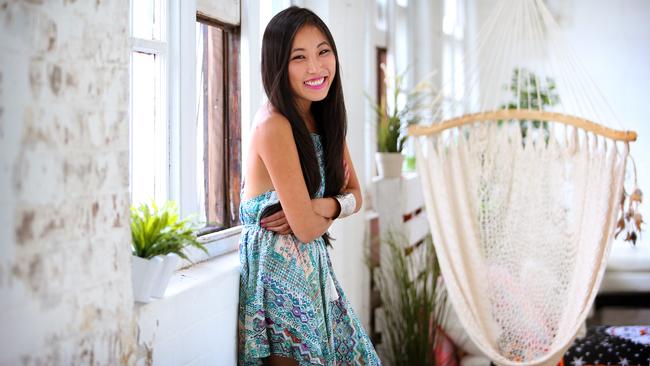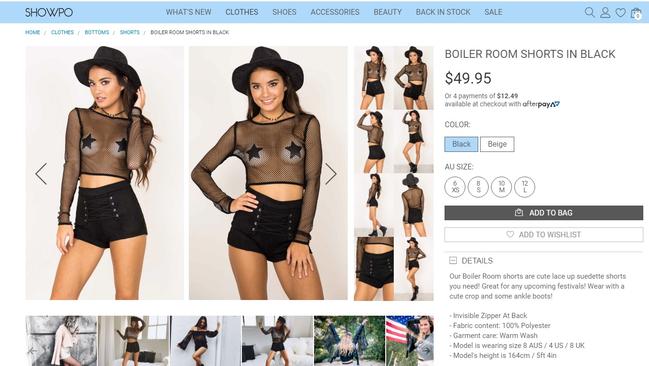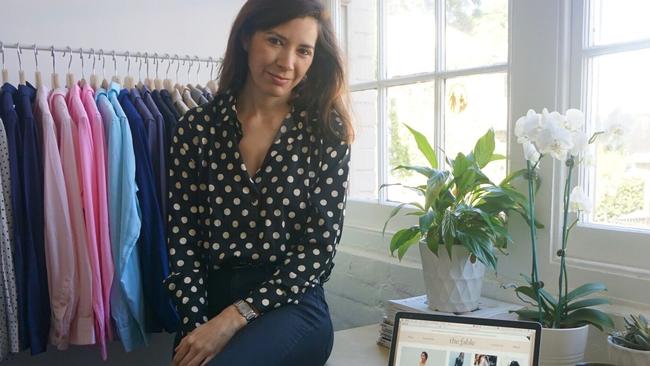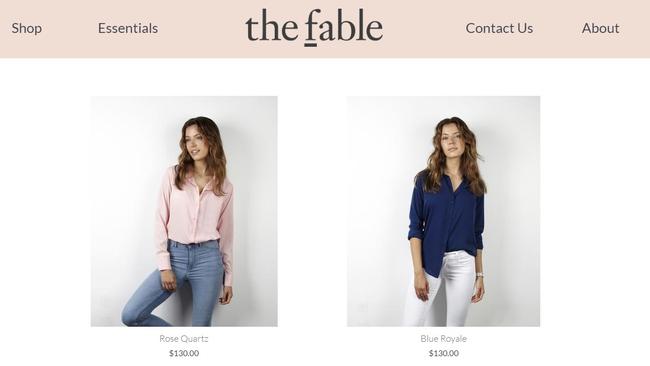The Aussie fashion queens making millions
THESE Aussie women were only in their 20s when they ditched the corporate life to sell clothes - now they’re millionaires.

EVERY day for six months, Jane Lu caught the bus into the city with her mum, dressed in corporate gear and carrying an empty laptop bag, pretending to go to work.
Ms Lu, the founder of massively popular online fashion retailer ShowPo, was terrified of telling her family she had quit her stable gig in corporate finance to start a fashion business — that had failed after just a month.
It was mid-2010, and she had just come back from travelling overseas for nine months. “I was having travel withdrawals — I couldn’t adjust to cubicle life,” the 30-year-old said. “One of my friends approached me to do fashion pop-up stores, so I jumped at the opportunity to do something else as a side project.”
Her friend convinced her to quit her day job, but just a month later pulled out of the business. “So all of a sudden, I’d gone from a job in corporate finance with a great career trajectory, to being in debt, unemployed, with a failed business,” she said.
Not long after, over a bottle of wine, she and another friend hatched a plan to start an online clothing store. But because she was living at home at the time, Ms Lu had to pretend to go to work for the first six months.
In fact, she didn’t tell her parents she had quit her job for two years. “As an only child whose parents emigrated from China so I could have job security, I couldn’t tell them,” she said. “It’s that time where you friends are just coming out of uni, getting great jobs, getting houses.”
Rather than go to the office, she would hang out at the state library and cafes, working on the new business.

From getting clothes on consignment from manufacturers — meaning they didn’t have to be paid for until they were sold — to paying her model in clothes instead of cash, Ms Lu built the tiny business into a fashion phenomenon.
“We’re a pure-play online e-tail business, pretty vanilla in what it is, but the way we’ve grown to where we are now is through social media, and just having a really big focus on having the right products,” she said.
ShowPo built its following organically, with its young, all-female staff posting selfies of themselves at parties wearing the latest gear. Today the brand has more than 950,000 followers on Facebook and 1.2 million on Instagram, and after a massive hiring spree last year doubled its headcount to just under 40.
With sales of more than $10 million last financial year, Ms Lu said the company had just hit a run rate of $30 million. She attributes the huge growth to overseas sales, particularly in the US. She said the imminent arrival of Amazon was not worrying her.
“I think it’s probably going to be okay,” she said. “We’re having massive growth in international markets like the US, where Amazon already is. We don’t stock external brands, we have a focus on our own unique products you can’t find on Amazon.
“We have a strong brand, good personal service, fast shipping, good designs. We’re not really competing with the Amazons of the world — if anything it might even make life harder for some of our competitors.”

Sophie Doyle, 29, is another young entrepreneur who took the leap from the corporate world to follow her dream.
At the age of 27, she left her role at L’Oreal Luxe, marketing for Yves Saint Laurent and Giorgio Armani, and spent a year travelling around India.
The experience there, where she toured local silk factories in Jaipur and met the families behind the manufacturing process, inspired her to start her own business manufacturing high-quality “ethical” silk shirts. Within a year, she launched clothing brand The Fable.
She recruited her tour guide, Tuveer, as her production manager, along with a team of 12 specialist silk tailors. The factory team are paid “nearly twice the working wage”, and work in comfortable conditions for no longer than eight-hour shifts.
Since launching in October 2015, The Fable — which Ms Doyle runs from her bedroom — has grown its sales to more than 500 shirts a month, and is set to bring in $500,000 in the next year. “I’d always loved them, always worn them, but never been able to find one which combined quality, affordability, and the ability to handwash,” she said.
Like ShowPo, Ms Doyle found social media was key to getting her brand out there. “Back in the early days, my friends and family bought shirts [to support me], but the thing that really got the business going was Instagram and reaching out to bloggers,” she said.
From there she secured partnerships with online retailers TheStore and HardtoFind, further boosting sales. She plans to expand into camisoles and slip dresses in the coming year, and is considering partnering with bricks-and-mortar boutiques.
“One of the beauties of the modern world is the need for a shopfront and high rents is gone,” she said. “If you’ve got a website, you can sell an affordable product and clear a nice margin.”

Ms Doyle said the key to launching a business was to find a clear gap in the market, and to work on a “customer-based model”. “It’s really important to have a point of difference, particularly in the fashion space where there is a lot of competition,” she said.
But there is also danger in waiting too long, she added. “At the end of the day, if you’ve got an idea for a business, it can be really easy to say, ‘I don’t want to launch this week, I want to wait.’ A year down the line the business isn’t live.
“You can get caught trying to make it absolutely perfect. Something that you think is only 90 per cent perfect may be 100 per cent perfect in the mind of the customer. Work to get your brand live as quickly as possible.”
It comes as a new study by PayPal finds Australian businesses are falling short in meeting customers’ shipping expectations. The mCommerce Index found lengthy Australian shipping times were one of the key factors causing mobile shoppers to abandon purchases at the checkout.
The survey found two-thirds of shoppers would buy an item in their online shopping cart with next-day delivery, but that dropped sharply to 28 per cent for four-to-seven-day delivery. Nearly 60 per cent said they were turned off from shopping at a store if shipping took too long.
PayPal Australia managing director Libby Roy said with Alibaba and Amazon poised to enter the Australian market, businesses needed to “think beyond ‘units sold’ and understand their customer’s full engagement life cycle including shipping, returns and other value-added benefits”.
“Showpo is a great example of an Australian fashion retailer that delivers on consumer expectations, they know what their customers want and they give them a great experience from start to finish including next-day and free delivery options,” Ms Roy said.
“Our research shows that Australian consumers will return to retailers who meet shipping expectations and will abandon online purchases if shipping takes too long or costs too much. If our Australian retailers, large and small alike, don’t consider the impact of shipping, as well as their overall mobile commerce readiness, they’re going to be out-performed by competitors.”




